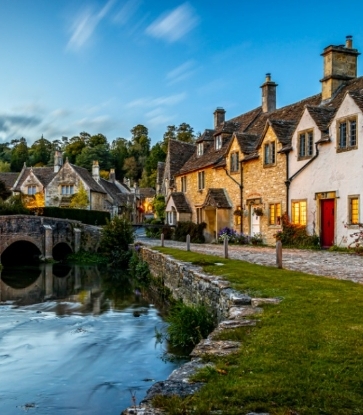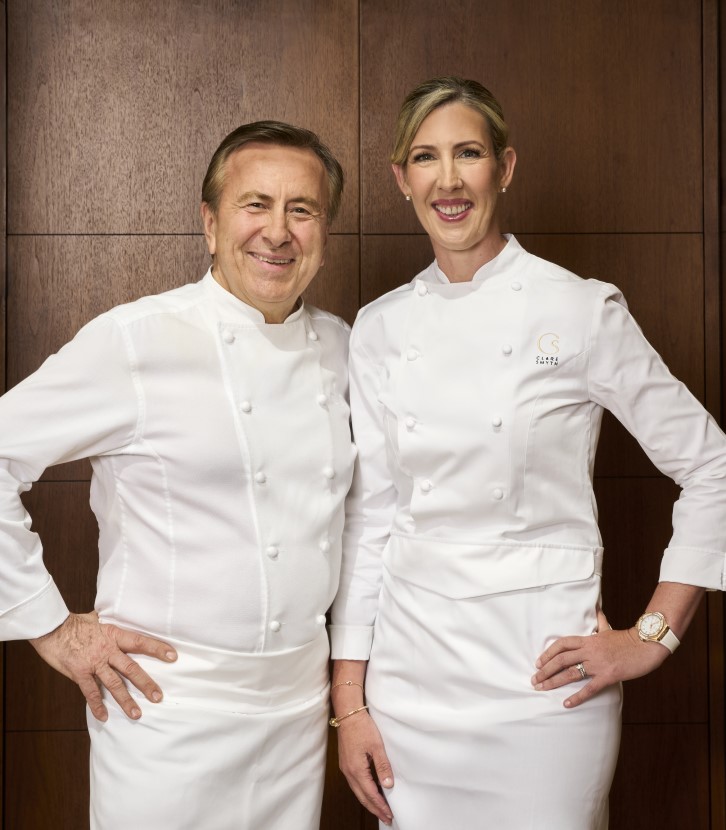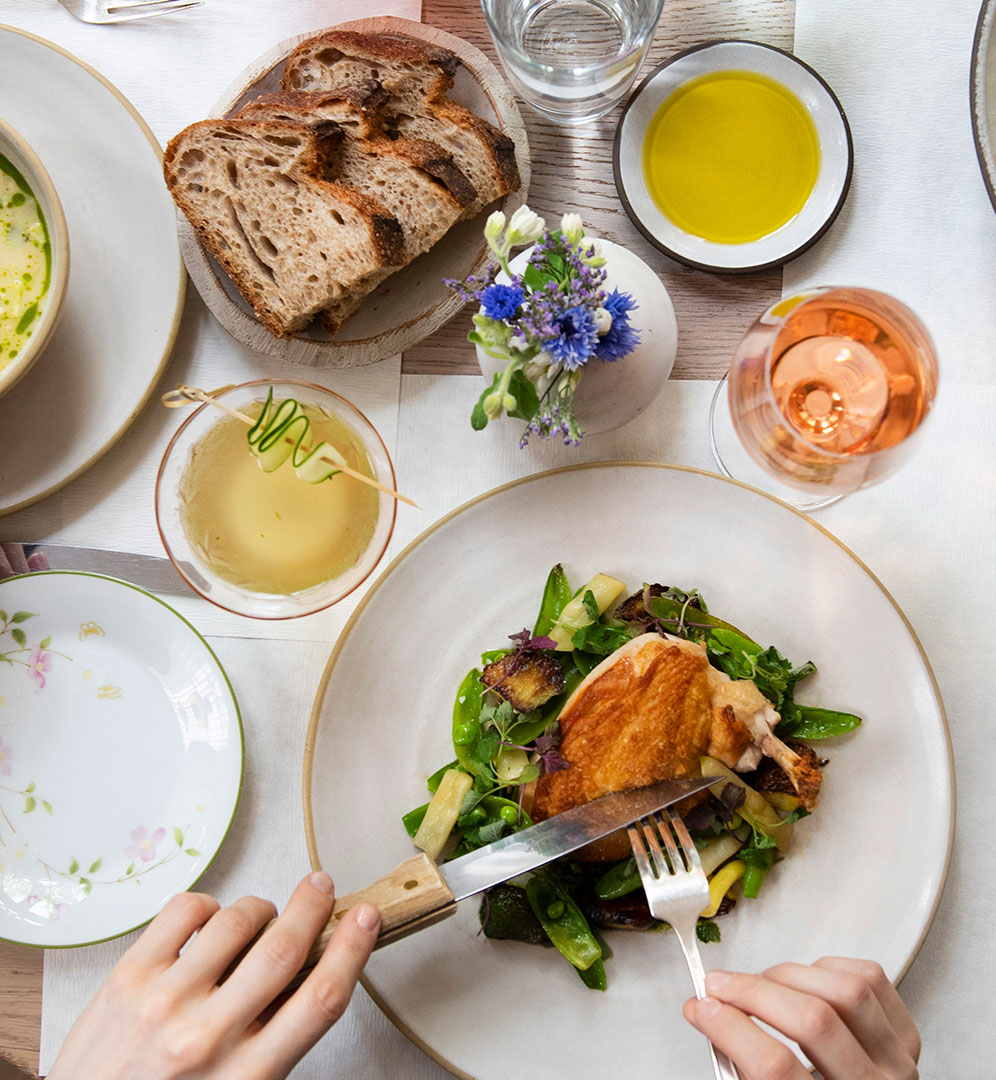The Michelin Green Star is awarded to restaurants who are at the forefront of the industry in sustainability. From community gardens and residencies aimed to explore the dynamic between humans and food to transforming recycled bags into plates, these restaurants prove that being green can be just as tasty as their counterparts.
That’s why, every week, whether it's a community-focused Filipino restaurant focused on fermentation and regenerative farming or a restaurant in Atlanta fueled by its 60-acre farm, we are highlighting a Green Star restaurant across the United States to share their sustainability story.
Next to an equestrian stable in Buckhead’s Chastain Park, The Chastain sits on a historic site that has served food for nearly a century. Sustainability was never a primary focus – until Chef Christopher Grossman took the reins.
Formerly a chef in Three Michelin Star and Michelin Green Star The French Laundry in California and One Star Atlas in Atlanta, he honed his expertise in cooking delicious food that respected the environment. When Andy Heyman approached him to create The Chastain, Grossman’s only requirement was being able to build out the garden. Today, his dream has come to life, and the chef is a leader in the global movement towards more sustainable dining.
And if you want to check out our Inspectors' take on The Chastain, click here.

What is your philosophy on sustainability?
It's always just been the way I've done things. Growing up, my family had a small garden. My grandparents were farmers. We would grow things and eat them fresh in the summer, and we would preserve them. I grew up in Michigan. I was exposed to the best corn, the best apples. I was brought up that way.
We're trying to set this up to be here next year, so that we can do this again and hopefully get better. Having healthier plants creates healthier food. It tastes better even if it’s the hard thing too.
Something that we set out to do from day one was that we were going to use compostable items. We were going to use the best ingredients that we could. We're going to source them locally. We're going to get organic.
If we can soften that impact, then it's our responsibility to do so.

Tell us about a few of your most impactful initiatives.
We're very farm-to-table, very hyper-focused on what is being grown locally, and that really determines our menus. We have an on-site farmer who will harvest if it's ready. How fresh can I really get things every single day?For our garden, we have three rules. First, we wanted to be able to enjoy and eat everything that we grew. Second, if we're not growing something for eating, then we're going to grow it for pollinators to help with yields. Third, we have to be rejuvenating the soil, which is a big part of the regenerative garden.
For our fava beans, [they have multiple uses]. They developed these little nodules on the roots that once you cut them off at the base, they're actually drawing in nitrogen and putting it back into the soil for us. We also found that the young tender tips of the plants were extremely delicious.
So, to have this constant circle going where we don't have to dump fertilizers, herbicides, and pesticides, we're trying to create this ecosystem that is as close to self-sufficient as we can get it. And we do that by mending it with compost.
For food waste, we find creative ways to use the trim. If we weren't able to utilize everything, we compost as much as we can with CompostNow Atlanta. And we've switched 99% of everything over to compostable, away from single use plastics.

What’s the most sustainable dish on the menu? Why?
When we realized that we couldn’t grow enough to feed the restaurant daily, we introduced our Garden Tasting Menu to educate our diners on what we are trying to accomplish in our small space. Every course features at least one and oftentimes more ingredients from our garden, most of which have been harvested that day. We feature a crop map of our garden so that you can follow along with your meal and see where the items from the dishes are grown.Also, our coffee, because we serve so much of it. It's about the impact of every single coffee cup being compostable. Even if you throw them on the ground, they degrade and are not supposed to harm the environment. The coffee is also generating coffee grounds, which we are using in our garden. Those coffee grounds will replenish that soil with some of the nitrogen that would actually be drawn out. And coffee grounds are a good deterrent for nematodes.

What can other restaurants do to be more environmentally conscious?
Start with food waste. What you get, utilize as much of it as you can.Next, compostable to-go cups, boxes, and silverware, because it really does add up. Even if the coffee cup ends up in the waste bin, you're still using a compostable coffee cup that is going to break down. Minimize single-use plastics.
The restaurant model was built on a broken model, and it's been running like that for a very long time. The economics of a restaurant is getting things as cheaply as you can.
We're the generation that's going to have to start fixing it. We're spending more on compostable products. That means, at the end of the day, we're going to have to raise our prices, and we're going to have to charge more for the experience of coming here.
You look at one thing, and it takes you into a rabbit hole, and now there's four more things. The more you focus on it, the more you start to see it, which can become terrifying too, but it also kind of leads you down that path to address this, to fix this. And I think that's really the most important step for everybody just to start taking.
What’s one thing everyone can do to be more environmentally friendly in their daily lives?
Food waste is still a big one. If you get it, eat it. It's already been harvested. It's already been shipped. So the damages are done. Now let's get the maximum that we can out of it.Your menu would evolve as you go throughout the week, but you were able to utilize all the bits and pieces. If you buy a rotisserie chicken, making a stock from that is just one more step, and then you've got great chicken stock.
Visit your local farmers market, and get to know the people that are growing your food. This connects people to the seasons, and the food is fresher than anything you’ll ever get at the store, therefore it is healthier and tastes better. It has less of an environmental impact.
Recycling and composting. Not everybody can compost if you don't want or don’t have room to have a compost bin on your property. But recycle as much as you can. The more that we can offset what's going into our landfills, the better.

What do you view as the future of zero waste/sustainability in gastronomy?
I don't think we have a choice. This is the way that it has to go. We have to start getting back to where our food system started. With the technology and the knowledge that we have now, we can do it better and take it further, but there has to be that conscious shift in an industry. I'm very impatient. Let's go, go, go right now.This is a ship we're steering, we're all in this together, trying to steer this thing back into a healthier direction. When I was growing up, environmental impacts, the climate, waste were all talked about a lot, but everybody kind of blew it off. It's not fine.
As a chef and in this industry, when you work with this many small farms, we’re on the front lines. Here, we had an early heat wave, followed by sustained heat, lack of rain, and then more heat. That was unprecedented. Tomatoes and squash have never been this difficult to get.
Look at your hands, I got two hands. Look around you, and you start counting hands, and that's how much can you get done if you can get enough people together to do it. We're going to be at the forefront of change. Let's get started.

Hero image: Andrew Thomas Lee / Chef Christopher Grossman
Thumb image: Andrew Thomas Lee / Chef Christopher Grossman





















